It’s not always easy to be yourself, especially when the world around you doesn’t quite get it. This is especially true for LGBTQ+ individuals living in places where traditions and laws can make life really tough. But even in the face of challenges, people find ways to live their truth and connect with others. This collection of stories, ‘Voices of Resilience: Personal Stories from LGBTQ+ Individuals in Muslim-Majority Countries,’ shares some of those journeys. It’s about finding strength, building community, and holding onto hope, even when things are hard.
Key Takeaways
- Many LGBTQ+ individuals in Muslim-majority countries face significant societal and legal hurdles, yet they actively seek ways to express their identities and advocate for their rights.
- Storytelling and sharing personal experiences are powerful tools used by activists to challenge negative perceptions and build connections, both online and offline.
- There’s a growing movement among some to reconcile faith and LGBTQ+ identity, seeking inclusive interpretations of religious traditions and building supportive communities.
- Coming out, living authentically in public, and overcoming family rejection are common, deeply personal struggles that highlight individual bravery and resilience.
- Despite facing repression, LGBTQ+ individuals are forming alliances, using social media, and drawing strength from shared experiences to create hope for future generations.
Navigating Identity and Society
Living as an LGBTQ+ person in many Muslim-majority countries means constantly figuring out how to exist in spaces that often don’t acknowledge or accept your identity. It’s a complex dance between personal truth and societal expectations. Challenging deeply ingrained societal perceptions about gender and sexuality is a daily act of courage. Many people grow up hearing one narrative about what it means to be Muslim and what it means to be a man or a woman, and that narrative doesn’t leave much room for anything else. This can lead to a lot of internal conflict and external pressure.
Challenging Societal Perceptions
It often feels like you’re swimming against a strong current. The common understanding of gender roles and relationships is usually very rigid. When your own feelings and identity don’t fit that mold, it can be isolating. You might find yourself questioning everything you’ve been told, trying to reconcile your inner self with the outer world. This process isn’t easy, and it often involves a lot of quiet introspection before any outward steps are taken. It’s about finding ways to be yourself without inviting undue hardship.
The Struggle for Human Rights
Beyond personal identity, there’s the larger fight for basic human rights. In many places, LGBTQ+ individuals face legal discrimination, and in some cases, criminalization. This isn’t just about abstract laws; it affects daily life – job prospects, housing, and even personal safety. The struggle for recognition and equal rights is ongoing, and it requires immense bravery from those on the front lines. It’s a fight for the simple dignity of being treated as a full human being. The work of scholars like Scott Kugle highlights the need for nuanced discussions that can inform activism Homosexuality in Islam: Islamic Reflection on Gay, Lesbian and Transgender Muslims.
Finding Strength in Self-Acceptance
Despite the external challenges, many find incredible strength within themselves. Self-acceptance is a powerful tool. It’s about recognizing your own worth, independent of societal approval. This journey often involves connecting with others who share similar experiences, even if those connections are made cautiously. Building a sense of self-worth is a vital step in weathering the storms of societal judgment and prejudice. It’s about cultivating an inner resilience that can sustain you through difficult times.
Acts of Courage and Activism
It takes a certain kind of bravery to speak up when the world around you tells you to stay quiet. Many LGBTQ+ individuals in Muslim-majority countries are doing just that, finding ways to push for change even when it’s incredibly difficult.
Speaking Out Against Repression
Sometimes, the most powerful act is simply to be seen and heard. For many, this means challenging the status quo directly. However, coming out publicly as LGBTQ+ to advocate for rights can come with a heavy price. We’re talking about serious online harassment, being kicked out of school, or even facing rejection from family. It’s a tough choice, and not everyone can or wants to make it. Some activists, like Khalid Abdel-Hadi, founder of the Jordanian magazine My.Kali, have shared their experiences of being one of the few to speak out publicly. He noted that while being gay might be less of a taboo in private circles, the family context is often the hardest part. It’s like, “It’s okay to be gay, but you don’t need to tell everyone.” This pressure means many stay silent, even if they’re out to friends.
In some parts of the Gulf, there’s a noticeable lack of public discussion about sexual orientation and gender identity. Activists in places like Lebanon mentioned not knowing of any active LGBTQ+ groups in countries like Bahrain, Kuwait, Oman, Qatar, Saudi Arabia, or Yemen. One person from Bahrain explained it as a kind of social deal: “We have oil, you get wealth, just be quiet. If you don’t like it, leave.” This mindset makes open activism really rare.
Building Bridges Through Storytelling
Sharing personal stories is a big part of how activists are trying to make a difference. It helps people understand different perspectives and challenges common misconceptions. For example, a video campaign launched by alQaws reached hundreds of thousands of people on social media. But timing is everything. They had to wait for major events, like a large hunger strike and other incidents, to pass before they could launch their campaign. This shows how activists have to be mindful of the broader social and political climate.
It’s not always easy to get support from other organizations. In Algeria, for instance, a law makes it risky for groups to register if their goals are seen as going against “public morals.” This makes it hard for LGBTQ+ groups and even other human rights organizations to work together. Zoheir, an activist from TransHomosDZ, explained that many human rights groups are hesitant to get involved with LGBTQ+ issues, either out of fear, disagreement on what constitutes human rights, or even homophobia. However, by documenting cases of violence against LGBTQ+ people, groups like TransHomosDZ are slowly changing minds. Their reports on violence within families, universities, and prisons have had an impact, leading some non-LGBT people, like feminist organizations, to say, “This is terrible, how can we help?” It’s a slow process, but it’s building awareness that violations are happening.
Creative Resistance in Constrained Spaces
When direct public statements are too risky, people get creative. Social media is one way to reach others, but governments often try to control online spaces too. In Oman, a blog was temporarily blocked, and in Egypt, people have been arrested for running pro-LGBTQ+ Facebook pages. This has led some organizations to remove their public pages to stay safe.
But there are other ways. In Morocco, one group distributed letters to homes, asking people to “respect and love LGBTI communities.” In Iraq, activists secretly put up posters in Baghdad at night that read, “I am equal to you. Difference is the basis of life.” They had to do this in secret because it’s dangerous, and they could face violence from militias. These acts, though often done in the shadows, are important ways of asserting presence and demanding recognition.
Building alliances often means working with groups that can’t publicly support LGBTQ+ issues. These allies might offer resources or space behind the scenes, understanding the risks involved. This quiet support is crucial for activists who are often working with limited resources and facing significant opposition. It’s about finding common ground and recognizing that solidarity can take many forms, even when public declarations are not possible.
The Intersection of Faith and Identity

It’s a tricky thing, trying to hold onto your faith when it feels like the very same faith is being used to push you out. For many LGBTQ+ folks in Muslim-majority countries, this is a daily reality. They’re often caught between deeply held spiritual beliefs and societal or religious interpretations that condemn their identity. It’s not just about being gay or trans; it’s about how that identity clashes with what they’ve been taught about God, community, and belonging.
Reclaiming Religious Narratives
Some people are finding ways to look at Islamic texts and traditions differently. Instead of seeing them as rigid rules that exclude, they’re exploring interpretations that allow for inclusion and love. This isn’t about throwing out tradition, but about finding the parts that speak to compassion and justice. It’s like finding hidden rooms in a familiar house, rooms that were always there but maybe overlooked.
Challenging Interpretations of Tradition
This is where the real work happens. It involves questioning the common understandings of religious laws and customs. Often, what’s presented as unchangeable religious doctrine is actually a mix of historical context, cultural norms, and specific interpretations. People are starting to say, “Wait a minute, is this really what the faith is about, or is it about how people have chosen to practice it?”
- Questioning historical context: Understanding when and why certain rules were established.
- Highlighting diverse voices: Bringing forward scholars and figures who offered different perspectives.
- Focusing on core values: Emphasizing principles like mercy, justice, and kindness that are central to Islam.
Finding Community Within and Beyond Faith
For many, the journey involves finding others who share similar experiences. This can mean connecting with other LGBTQ+ Muslims, sometimes online, sometimes in secret gatherings. It can also mean finding allies in progressive religious circles, or even building bridges with LGBTQ+ individuals from other faiths who understand the struggle of reconciling identity with religious heritage. The shared experience of navigating faith and identity creates a powerful bond.
It’s a complex dance, trying to honor your spiritual roots while also living authentically. Many feel a deep pull to connect with their faith, seeing it as a source of strength and moral grounding, even when facing opposition from within their religious communities. This internal dialogue is a significant part of their resilience.
Personal Journeys of Resilience
Living Authentically in Public
It’s a tough balancing act, trying to live your truth when the world around you isn’t always ready to accept it. For many LGBTQ+ individuals in Muslim-majority countries, simply existing openly is an act of bravery. Think about Rashed, a young trans man in Jordan. He faced so much bullying in school that he had to drop out. He was dealing with depression and felt totally alone, even hurting himself trying to manage hormones without any medical help. He didn’t see himself as an activist, but he and his friend Safi wanted better healthcare for trans people. They went to local officials, hoping public hospitals would offer support, including hormone therapy. At first, the officials seemed open, but then they got worried about how society would react and said no. That’s when Rashed and Safi realized they needed to work on changing people’s minds first.
The Impact of Coming Out
Coming out is rarely a one-time event, and its impact can ripple through every part of your life. For some, like the individuals behind the magazine My.Kali, claiming their identity publicly became a way to inspire others. After getting some attention, they decided to embrace it and make a statement. Friends suggested they should own their story, not be outed. So, they took another magazine cover to come out. This led to people from all over the region reaching out, wanting to be part of it. Even though the magazine usually sticks to arts and culture, its presence became a lifeline for LGBTQ+ people in risky situations. They get contacted by refugees, people kicked out of their homes, or those being blackmailed, and they help connect them with resources like lawyers.
Overcoming Family Rejection and Stigma
Family rejection and the stigma that comes with it can be incredibly painful. It’s a hurdle many face, and finding ways to cope is a testament to inner strength. Sometimes, reconnecting with faith can be a source of power. For LGBTQ+ Muslims, feeling estranged from their religion because of family expectations can be devastating. Parental authority often gets tied up with religious beliefs, leading some to feel abandoned by God. But finding a personal, spiritual connection to faith can provide the endurance and hope needed to get through tough times. It’s like finding an anchor in a storm.
The journey of living authentically is often a quiet, persistent effort. It involves small acts of courage every day, whether it’s correcting a misgendering or sharing a personal story with a trusted friend. These individual acts, though seemingly minor, build a foundation for greater acceptance and understanding over time.
Global Connections and Support Networks
It’s easy to feel like you’re the only one going through something, especially when you’re part of a community that often has to stay hidden. But the truth is, people across different Muslim-majority countries are finding each other, sharing stories, and building support systems. These connections are a lifeline, offering solidarity and practical help.
Cross-Border Alliances
Activists and individuals are realizing they’re not alone by connecting with others in neighboring countries or even across continents. They’re learning from each other’s experiences, sharing strategies for dealing with legal challenges, and finding ways to support those who are in immediate danger. Sometimes this means a group in one country can rally support from organizations in many others when someone faces arrest or discrimination. It’s about recognizing shared struggles and working together, even when public support is difficult to find. Many groups understand that they can’t always be out front publicly, but they still find ways to help behind the scenes, offering resources or safe spaces.
The Role of Social Media
Online spaces have become incredibly important. For many, social media platforms are the first place they can connect with others who share their identity. It’s a way to raise awareness, share information, and build a sense of community when offline gatherings are too risky. These digital spaces allow for discussions about gender, identity, and self-care, helping people feel less isolated. It’s also a place where people can share their stories, creating a record and offering affirmation to others who might feel alone. Digital security is a big concern, but the ability to connect is often worth the risk.
Learning from Shared Struggles
People are actively building networks to share knowledge and provide mutual aid. Organizations are forming to offer training, capacity building, and even emergency support for activists facing threats. These groups often work on a regional level, trying to include voices from countries that might feel overlooked by larger international organizations. They organize conferences, workshops, and online forums where people can exchange ideas and plan actions. It’s a slow process, but these collaborations are making a real difference in how people can live more openly and safely. For example, film screenings and oral history projects are being used to bring people together and affirm their experiences, even in places where the concept of a visible community is still developing. The fight for rights in these countries is often tied to broader social justice movements, showing that LGBTQ+ issues are part of everyone’s fight for freedom and equality. It’s inspiring to see how people are finding strength in numbers, even when facing significant challenges, like the fact that homosexuality is criminalized in many Muslim-majority countries [c34d].
- Building Coalitions: Working with other civil society groups, even if they can’t publicly endorse LGBTQ+ causes, provides a vital support system. This can involve sharing office space, resources, or legal assistance.
- Shared Campaigns: Participating in broader social justice movements helps to normalize LGBTQ+ issues and shows solidarity with other causes, strengthening the overall fight for human rights.
- Digital Outreach: Utilizing social media and online platforms to create safe spaces for discussion, share personal stories, and build a sense of belonging across borders.
The interconnectedness of activists and communities across borders is a testament to human resilience. It shows how shared experiences, even in isolation, can forge strong bonds and create a collective force for change. This network of support, though often unseen, is a powerful engine for progress.
Hope for Future Generations
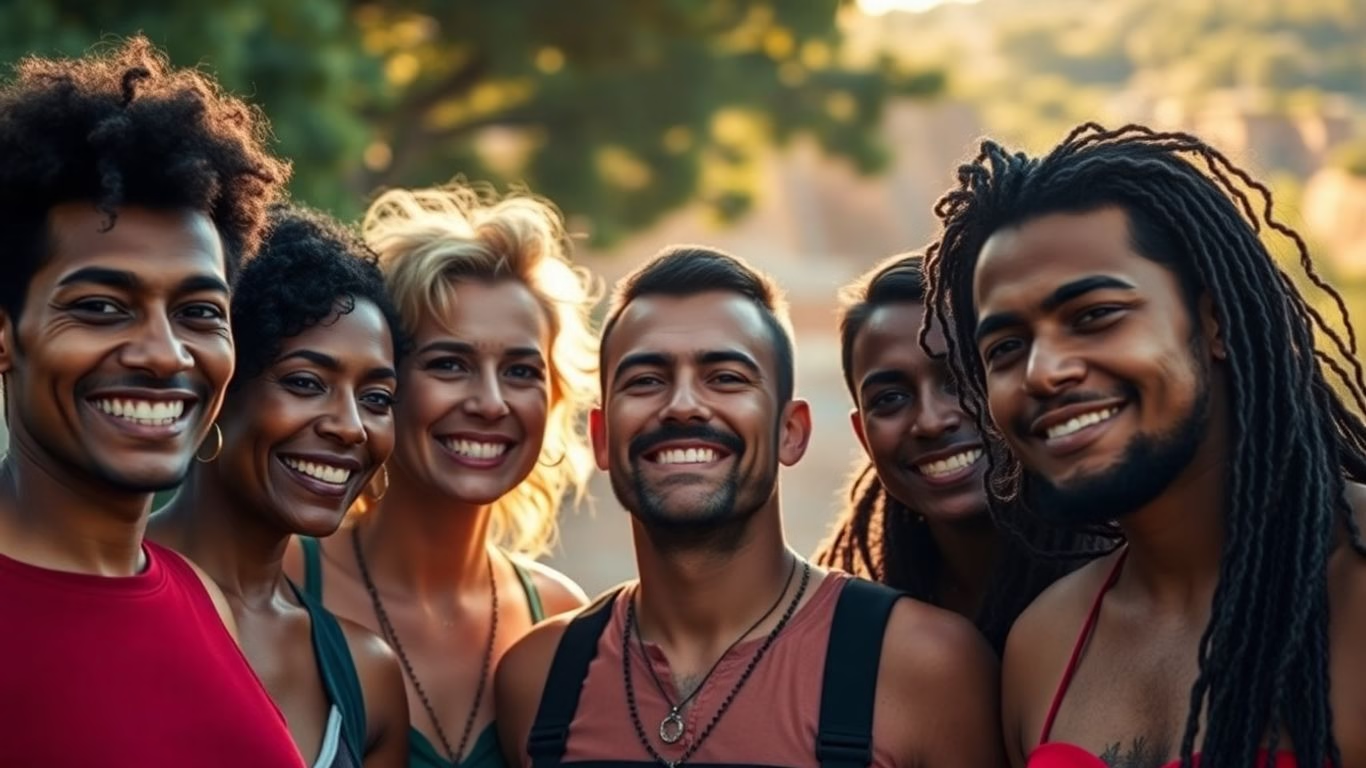
Thinking about what comes next is a big deal, right? It’s easy to get caught up in the day-to-day struggles, but we also need to look ahead. For LGBTQ+ individuals in Muslim-majority countries, this means planting seeds for a future where acceptance isn’t a fight, but a given. It’s about building a foundation so the next generation doesn’t have to face the same hurdles.
Empowering New Scholars and Writers
One of the most powerful ways to shape the future is by supporting new voices. We need more people writing, researching, and sharing their experiences. This isn’t just about telling stories; it’s about creating a body of work that challenges old ideas and offers new perspectives. Imagine a generation of scholars and writers who feel free to explore the intersection of faith, identity, and sexuality without fear. Their work can pave the way for deeper understanding and change within communities. It’s about making sure that the difficult conversations we’re having now become the norm for them. We’re seeing this already, with students taking up the challenge and doing their own research, which is fantastic. It’s like a gift that keeps on giving, as they say.
Inspiring Dialogue Within Families
Change often starts at home. We hope that books and personal stories can help open up conversations between LGBTQ+ individuals and their families. It’s not always easy, and sometimes parents are the last to come around. But if we can provide them with information and a different way to think about things, based on shared values and principles, that’s a huge step. The goal is to move away from rejection and towards understanding, one family at a time. This kind of internal shift can ripple outwards, influencing the wider community in ways we might not even see immediately. It’s about showing that it’s possible to hold onto faith and be accepting of loved ones.
Cultivating Resilience Through Faith
For many, faith is a source of strength. We want to help LGBTQ+ Muslims reconnect with their spiritual side, finding comfort and resilience there. It’s about reclaiming religious narratives and challenging interpretations that exclude them. When individuals can find a personal connection to their faith, it gives them the moral resources to stand up against oppression. This spiritual grounding can be a lifeline, offering hope and endurance. It’s about showing that faith and identity don’t have to be in conflict. We’ve seen how sharing personal journeys, like those of activists and musicians, can offer a path forward for others, providing a sense of belonging and divine acceptance. It’s a reminder that even in difficult circumstances, there is a way to live authentically and find peace, perhaps even inspiring dialogue with religious leaders through shared principles An Unlikely Social Justice Warrior.
The future hinges on creating spaces where authenticity is not just tolerated but celebrated. This involves nurturing a generation that is equipped with knowledge, supported by their families, and grounded in a faith that embraces all its members. It’s a long road, but the steps we take today build the path for tomorrow.
Moving Forward
The stories shared here show us that even when facing tough situations, people find ways to be themselves and connect with others. It’s clear that being LGBTQ+ in many Muslim-majority countries isn’t easy, with laws and social views making life hard. Yet, individuals are speaking up, finding support online and in person, and building communities. They’re showing the world that their identities are valid and that they deserve to be treated with respect. While the challenges are huge, the courage and resilience of these voices offer a powerful message of hope and a call for continued understanding and change.
Frequently Asked Questions
What does it mean to be LGBTQ+ in countries where most people are Muslim?
It means facing tough challenges. Many LGBTQ+ people in these countries deal with judgment from society and sometimes even from their own families. Laws might not protect them, and they might feel like they have to hide who they are to stay safe. But they are also finding ways to be strong and support each other.
How do LGBTQ+ individuals in these countries show resilience?
Resilience means bouncing back from hard times. LGBTQ+ people show this by speaking up for their rights, even when it’s risky. They share their stories to help others feel less alone and find creative ways to express themselves, like through art or online. They build communities and support networks to help each other.
Can someone be both LGBTQ+ and Muslim?
Yes, absolutely. Many LGBTQ+ Muslims find ways to connect their faith with their identity. They work to understand religious ideas in new ways that include everyone. They build communities where they can practice their faith and be true to themselves, sometimes within religious groups and sometimes outside of them.
What are some of the biggest struggles LGBTQ+ people face in these regions?
Some of the biggest struggles include dealing with laws that criminalize same-sex relationships, facing judgment and rejection from family and friends, and sometimes experiencing violence or unfair treatment. It can be very hard to live openly and honestly when you fear these consequences.
How does social media help LGBTQ+ individuals in Muslim-majority countries?
Social media can be a lifeline. It allows people to connect with others who share similar experiences, even if they are far apart. It’s a place to share information, find support, and organize for change. It can also be a way for people to share their stories with a wider audience, raising awareness about the challenges they face.
What is the hope for the future for LGBTQ+ people in these countries?
The hope is for a future where LGBTQ+ individuals can live freely and safely, without fear of judgment or punishment. This includes better understanding and acceptance within families and communities, stronger legal protections, and more opportunities for young people to learn, grow, and express themselves authentically. It’s about building a more inclusive world for everyone.

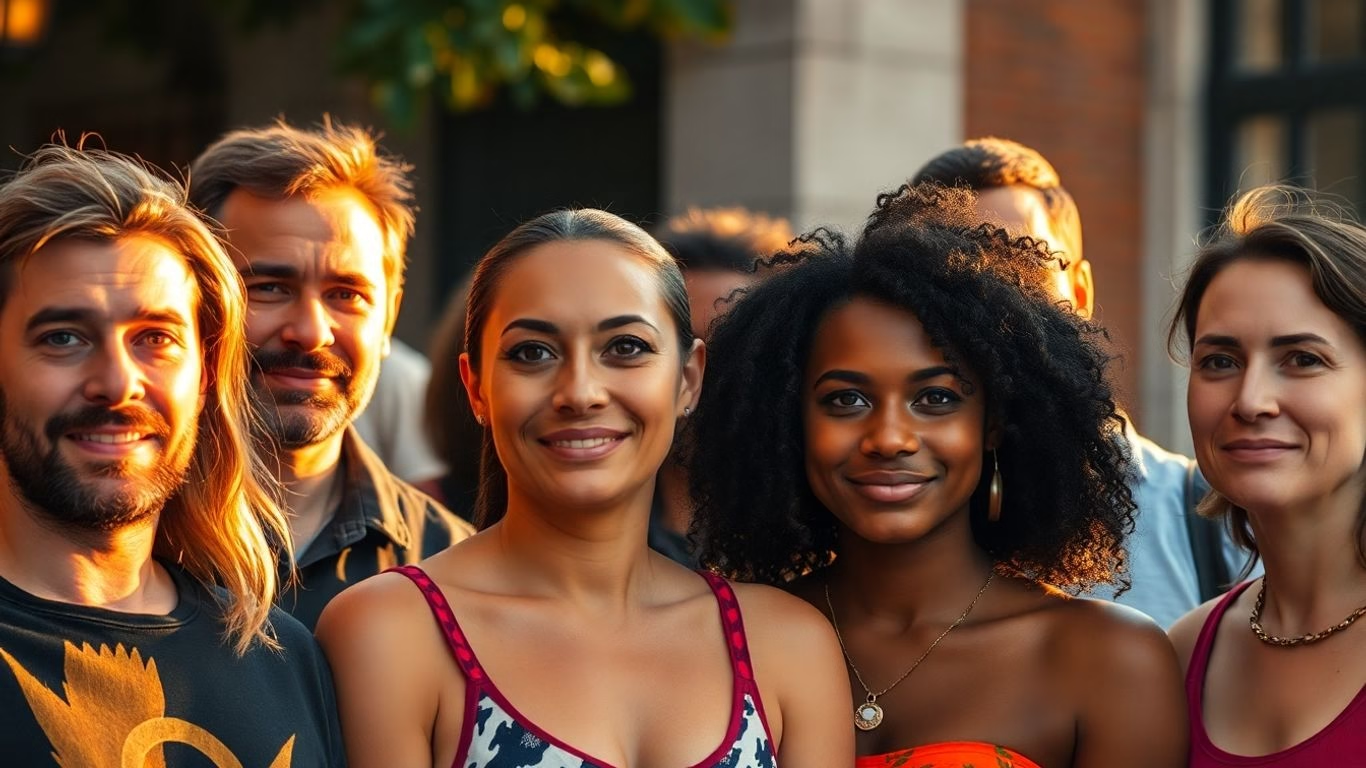
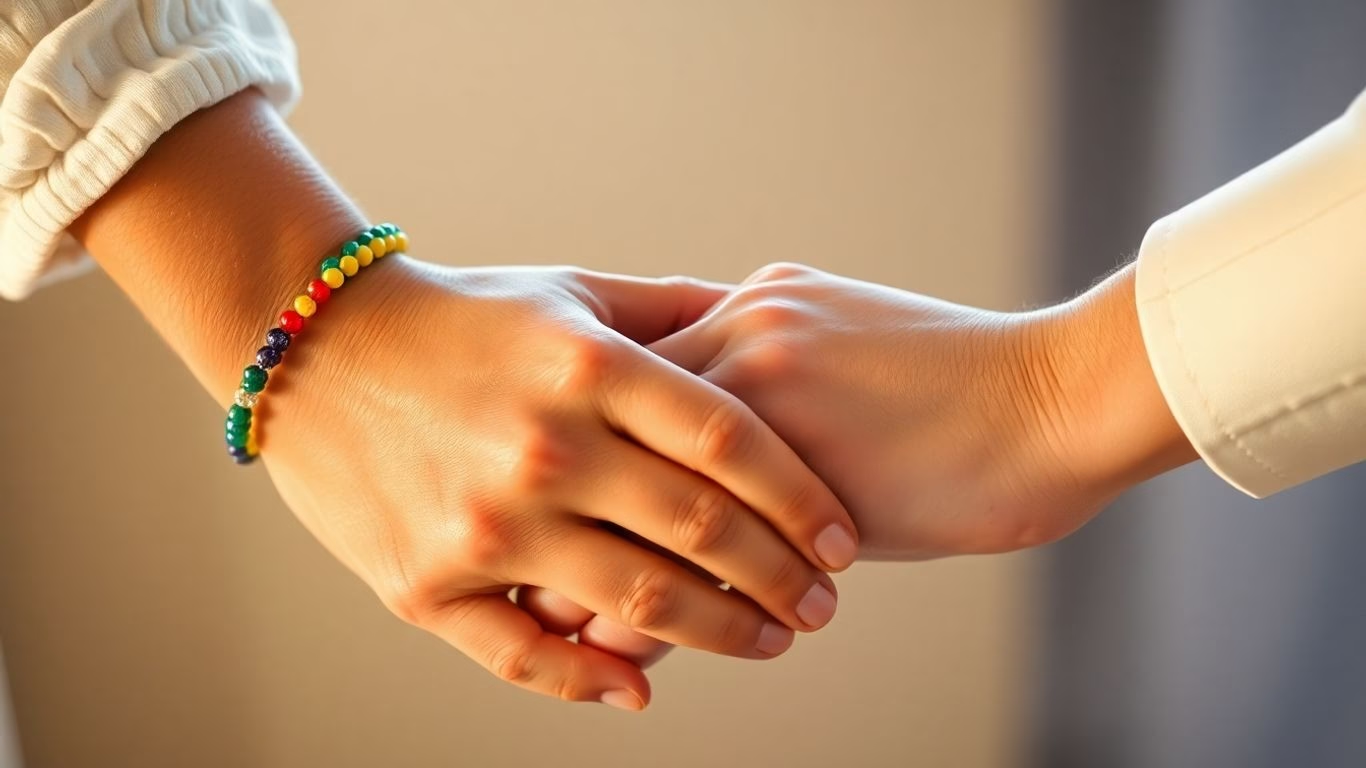
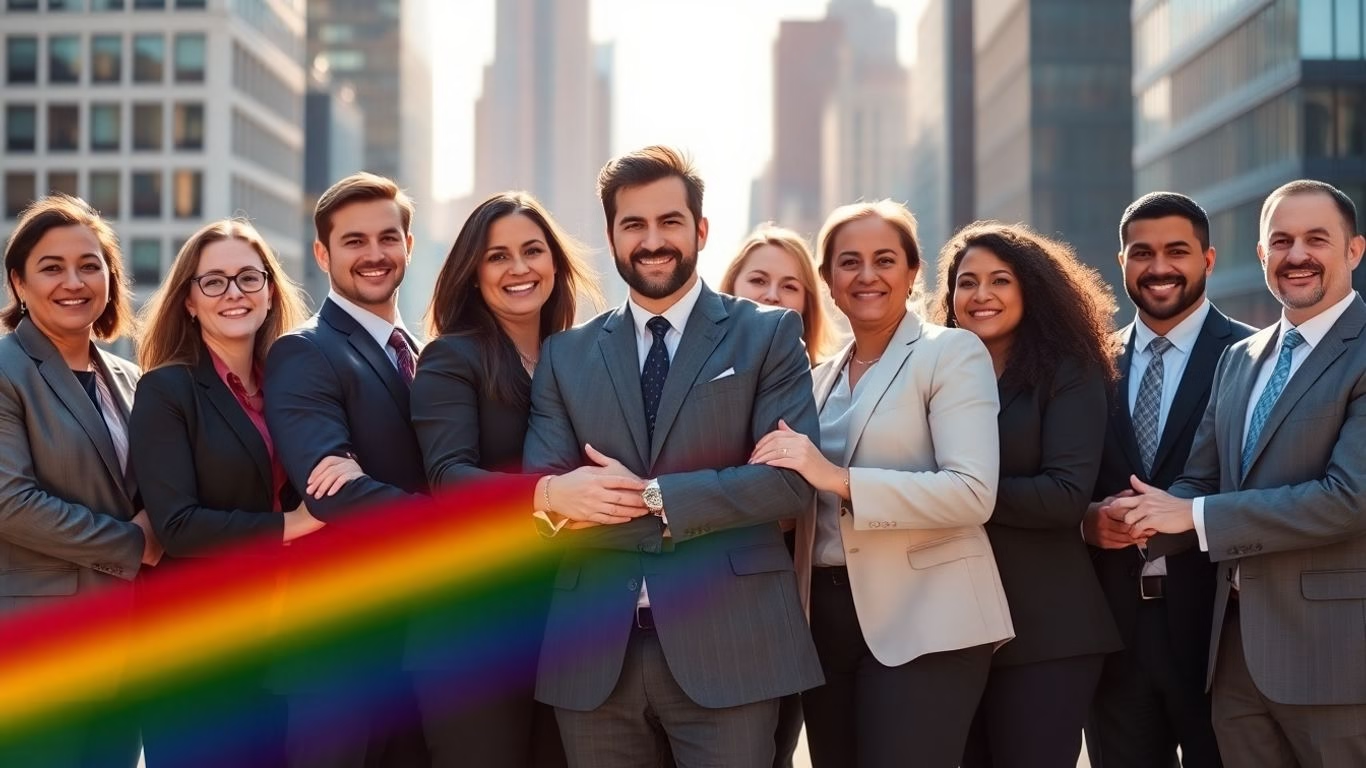
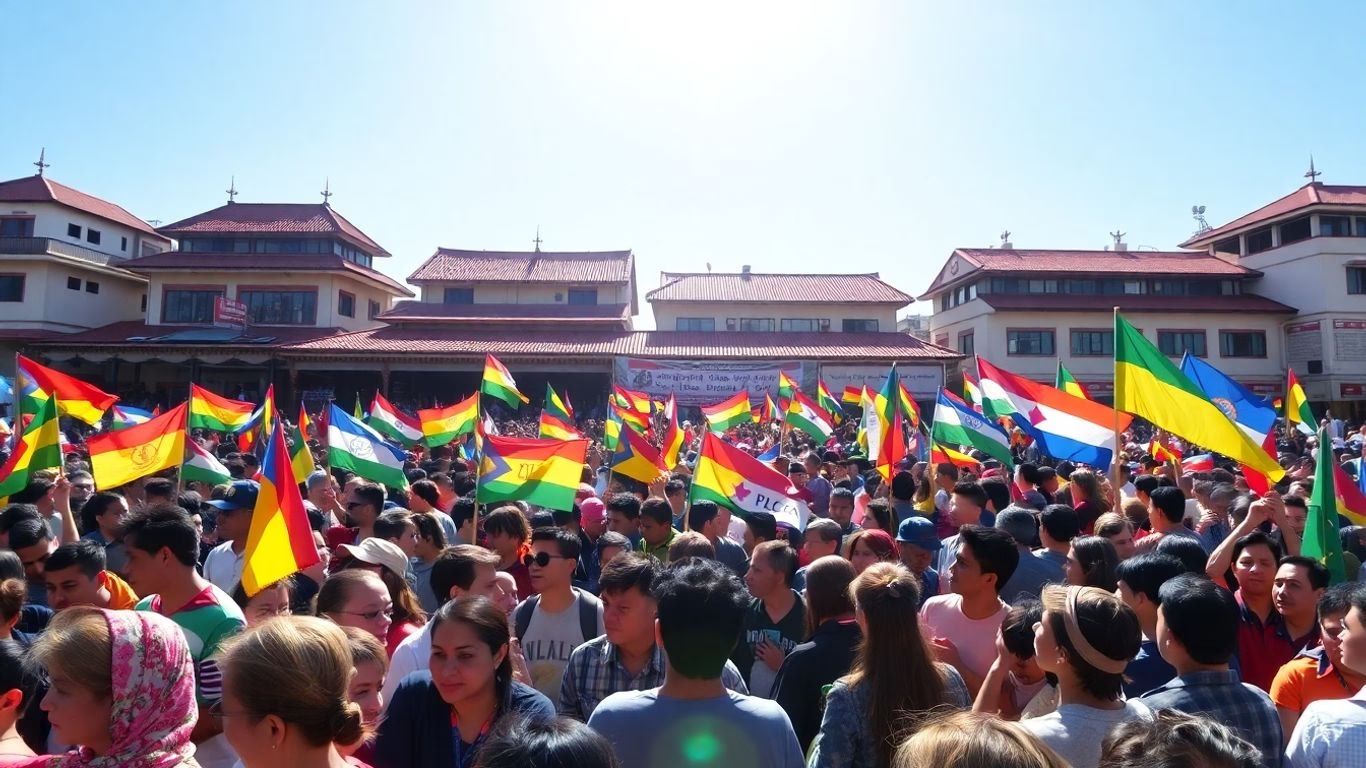
Leave a Reply